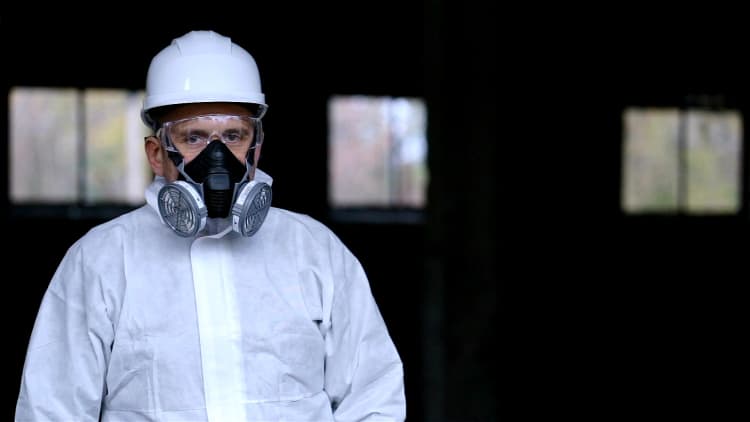The World Health Organization will likely deem the coronavirus a global pandemic once sustained person-to-person spread takes hold outside China, a Centers for Disease Control and Prevention official told Congress on Tuesday.
The outbreak already meets two of the three main criteria under the technical designation of a pandemic, Dr. Anne Schuchat, principal deputy director of the CDC, said in prepared remarks to the Senate Committee on Health, Education, Labor and Pensions.
"It is a new virus, and it is capable of person-to-person spread," she said. "If sustained person-to-person spread in the community takes hold outside China, this will increase the likelihood that the WHO will deem it a global pandemic."
On Monday, WHO officials said the number of new COVID-19 cases outside China was almost nine times higher than that inside the country in the previous 24 hours.
WHO Director-General Tedros Adhanom Ghebreyesus said health officials would not "hesitate" to declare the outbreak a pandemic if "that's what the evidence suggests." On Friday, he said the WHO hadn't declared a pandemic in part because most cases of COVID-19 were still traced to known contacts or clusters of cases, and there wasn't any "evidence as yet that the virus is spreading freely in communities."
Schuchat said Tuesday that the CDC, with assistance from the Department of Homeland Security, has conducted 49,827 passenger screenings at airports. The CDC has also deployed more than 1,500 staff from headquarters, overseas and field deployments to help with response efforts, she said.
"CDC's most expert and practiced infectious disease and public health experts are dedicated to this response 24/7 to protect the American people," she said. "The agency's approach to COVID-19 is built upon decades of experience with prior infectious disease emergencies including responses to SARS, MERS, and Ebola, and to pandemic influenza."
As of Monday, the CDC said 91 cases of COVID-19 had been confirmed in the United States. At least 48 of those cases were repatriates from Wuhan, China, the epicenter of the outbreak, and the Diamond Princess cruise ship, according to an update on the agency's website. At least 17 cases — 12 confirmed and five presumptive positive — are travel-related infections. Twenty-six cases — four confirmed and 22 presumptive positive — are from human-to-human interaction, according to the CDC.
Washington state health officials confirmed at least six deaths near Seattle since this weekend.
Last week, the CDC stepped up its call for the public to start preparing for a possible pandemic outbreak in the U.S.
"We are asking the American public to work with us to prepare for the expectation that this could be bad," said Dr. Nancy Messonnier, director of the CDC's National Center for Immunization and Respiratory Diseases. Schools should consider dividing students into smaller groups or close and use "internet-based teleschooling," she said.
"For adults, businesses can replace in-person meetings with video or telephone conferences and increase teleworking options," she added.



